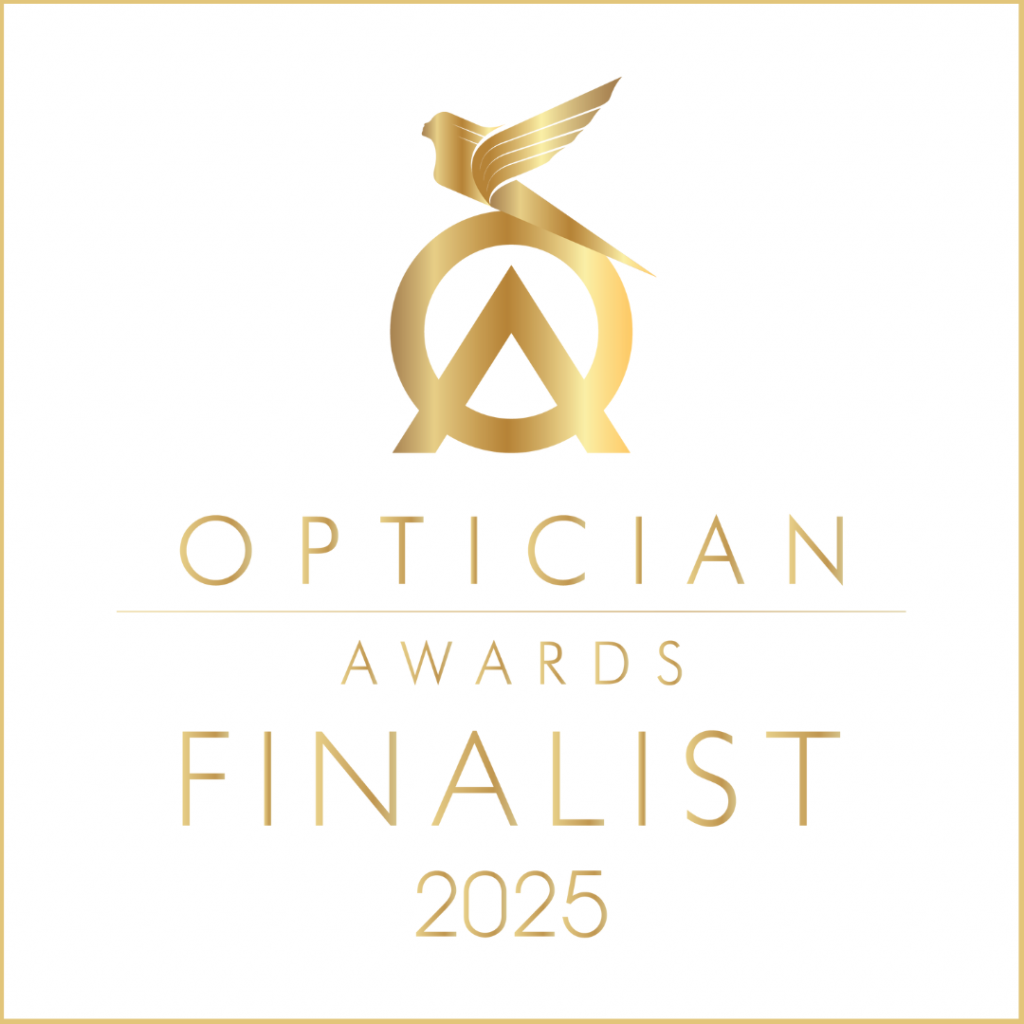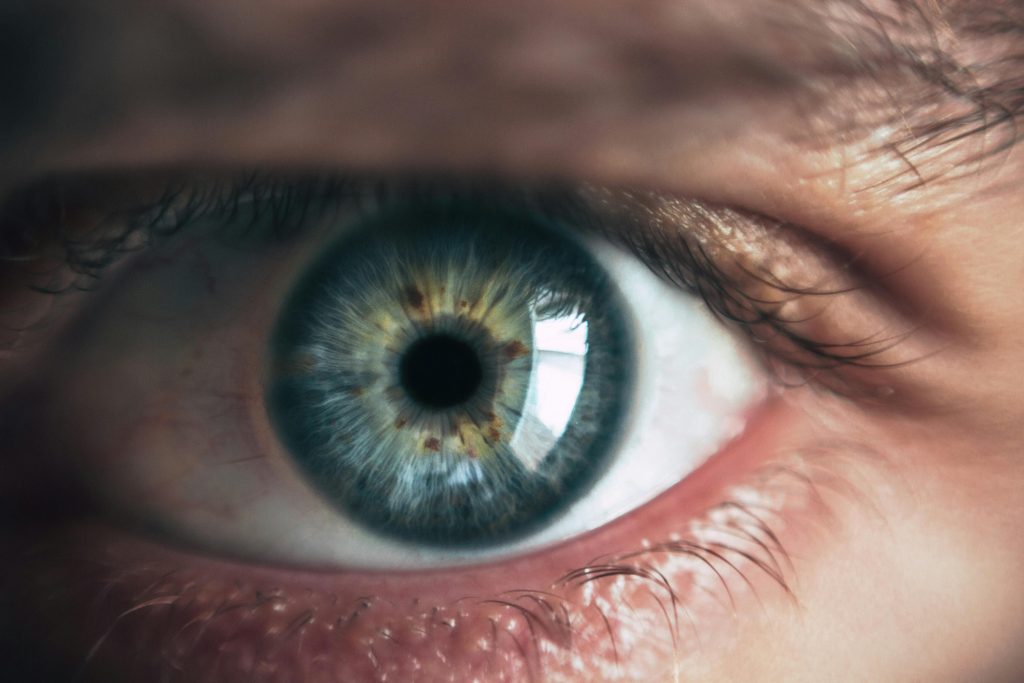What you’re really paying for in a complete eye health check.
If you’re due for an eye test, it’s natural to wonder: “How much is it going to cost?”
It’s a simple question, but the answer is often more complex than just a number. That’s because the cost of an eye test – not just in Doncaster, but in the UK – can vary widely by provider and by what’s included.
What many people call an “eye test” is actually part of a more comprehensive eye health assessment.
While every standard eye test must meet certain regulated requirements, some practices may offer additional assessments, technology or imaging that build on this foundation to provide more detail or personalisation.
In this article, we’ll break down the factors that influence the cost of an eye test, what’s usually included (or not), and how to know whether you’re getting good value for money.
What does an eye test actually include?
Most people think of an eye test as a quick check for glasses.
In reality, a standard eye test appointment should be seen as an eye “examination” that may include several key steps, depending on the individual needs of the patient and the equipment available at the practice.
| Check | Checking for |
|---|---|
| Pre-test checks | May include eye pressure and auto-refraction |
| Fundus photography | Digital image of the back of the eye to spot signs of disease |
| OCT scan (if included) | 3D scan of the retina and optic nerve to detect issues early |
| Visual field screening | Assesses peripheral vision – used when clinically necessary |
| Prescription check | Measuring prescription in current glasses, especially for new patients |
| Lifestyle consultation | Understand your visual needs for work, hobbies, screen use, etc. |
| Optometrist consultation | Detailed assessment of vision, prescription and overall eye health |
Even though the optometrist may only spend 15–20 minutes with you, the overall time for a full eye test (or examination) may be 30–45 minutes including all assessments and team interactions.
Some practices around the country spend up to an hour on the eye examination, which is reflected in the higher cost of the appointment.
Why do eye test prices vary so much?
1. Standard vs. Enhanced eye tests
All standard eye tests must meet strict professional and regulatory guidelines — including vision testing, prescription determination, and an eye health assessment.
However, some practices may offer enhanced services that go beyond these essentials, such as OCT imaging or dry eye diagnostics. These additions can contribute to a higher overall cost.
| Type of Eye Test | Common Inclusions | Typical Duration |
|---|---|---|
| Standard Eye Test | Vision assessment, prescription, and eye health check (including back of the eye) | 15–25 minutes |
| Enhanced Eye Test | All of the above plus imaging, screening, and a more in-depth understanding | 30 minutes – 1 hour+ |
🧠 Did you know? OCT scans can detect conditions like glaucoma or macular degeneration up to 5 years earlier than traditional methods.
2. Training and expertise of the optician
Another factor that influences the cost of an eye test is the training and experience of the optometrist carrying out your assessment.
All optometrists practising in the UK are fully qualified and regulated professionals. However, as with any healthcare field, optometrists may differ in terms of their individual experience, additional training, areas of interest, or the types of cases they’ve seen in practice.
These differences – similar to seeing a consultant versus a junior doctor in a hospital setting – may influence the way your eye health is assessed or the recommendations provided.
Some practices also invest in continual professional development or specialist technology, which may impact the scope and detail of the appointment.
While this doesn’t always affect pricing directly, it can contribute to the overall value and confidence you might feel during your eye exam.
3. Technology used
Basic eye tests may not include imaging or retinal scans. Some practices often invest in advanced tools – like OCT and fundus photography – to give a fuller picture of your eye health. These tools increase cost, but also accuracy and early detection.
4. Time spent with the whole eyecare team
At many chain opticians, eye tests are often short and standardised. In contrast, independent practices may spend more time understanding your concerns and tailoring their advice, even if the optometrist’s time is only one part of the full visit.
5. Your personal risk factors
If you have specific risk factors – such as age-related changes, diabetes, or a family history of eye conditions – the structure of your exam may differ slightly.
For example, your optometrist may decide to carry out additional screening or imaging, depending on clinical need and equipment availability. These decisions are based on best practice, and not all carry additional costs.
Your optometrist will always explain the reason for any recommendations.
What does an eye test cost in practice?
It’s important to understand that there are no fixed or regulated prices for eye tests. Opticians set fees based on factors such as:
- 👁️ The range of assessments included (e.g. OCT, retinal photography)
- 👁️ The specialist training, experience and expertise of the optician
- 👁️ Practice’s investment in technology
- 👁️ Your individual needs or clinical requirements
Prices vary between opticians but as a rough guide, you might find they fall within the ranges below:
Standard eye test: typically anything from Free – £50+ for a test that includes vision assessment, prescription, and eye health check (although some practices may charge more)
Enhanced eye test (including advanced imaging like OCT or a dry eye assessment or additional specialist tests): may range from £50 – £100+, with some practices charging more (or less) depending on what is included in the examination.
Indeed, you may find some practices include elements of what might be considered an “enhanced test” within the price of their standard test.
🔎 Remember, these numbers are merely a rough guideline and reflect a broad part of the spectrum — fees are always set at each practice’s discretion.
Because pricing isn’t regulated by the General Optical Council (GOC), opticians value their services differently — one practice might charge £25 for a standard test, while another may include advanced imaging and more time, charging £60.
Neither is right or wrong; it reflects the practice’s investment and the patient experience they deliver.
Can you save money on eye tests?
- 👉 Check your NHS eligibility — Children, over 60s, and those with certain benefits or health conditions may qualify for a free NHS eye test.
- 👉 Understand what’s included — It’s helpful to ask what’s included in the fee, so you understand what assessments or scans may be part of your appointment.
- 👉 Consider long-term value — An enhanced test might catch issues early, actually picking up things a standard test might not and potentially saving your sight
Is it worth paying more for an eye test?
If you’d like more than the standard eye test – for example, to monitor eye health risks or get advanced scans of the eye – then a more in-depth eye test may be worth the higher fee.
In summary: What are you paying for?
When you pay for an eye test, you’re not just paying for a prescription. You’re investing in:
- ✅ Early detection of eye diseases and vision risks
- ✅ Time with trained professionals who understand your needs
- ✅ Access to advanced diagnostic technology
- ✅ A personalised recommendation that fits your lifestyle
It’s less about a price tag and more about peace of mind.
Ultimately, every eye test — whether standard or enhanced — should be seen as a vital health check, not just a means to get a glasses prescription.
Optometrists play a key role in detecting early signs of conditions that can affect not just vision, but overall health too.
Prices may vary between practices due to differences in technology, skill, experience, and the scope of the assessment, but all patients should expect a high standard of care delivered by trained, regulated professionals.
Thinking about booking an eye test?
At Edwards & Walker, our eye test appointments are built around your needs. Whether you qualify for an NHS test or choose a private, enhanced assessment, we’ll explain what’s included and why it matters.
🕒 Private eye tests start from £45 and typically take 30 minutes, including all assessments.
Contact us today to learn more or to book your next appointment.






